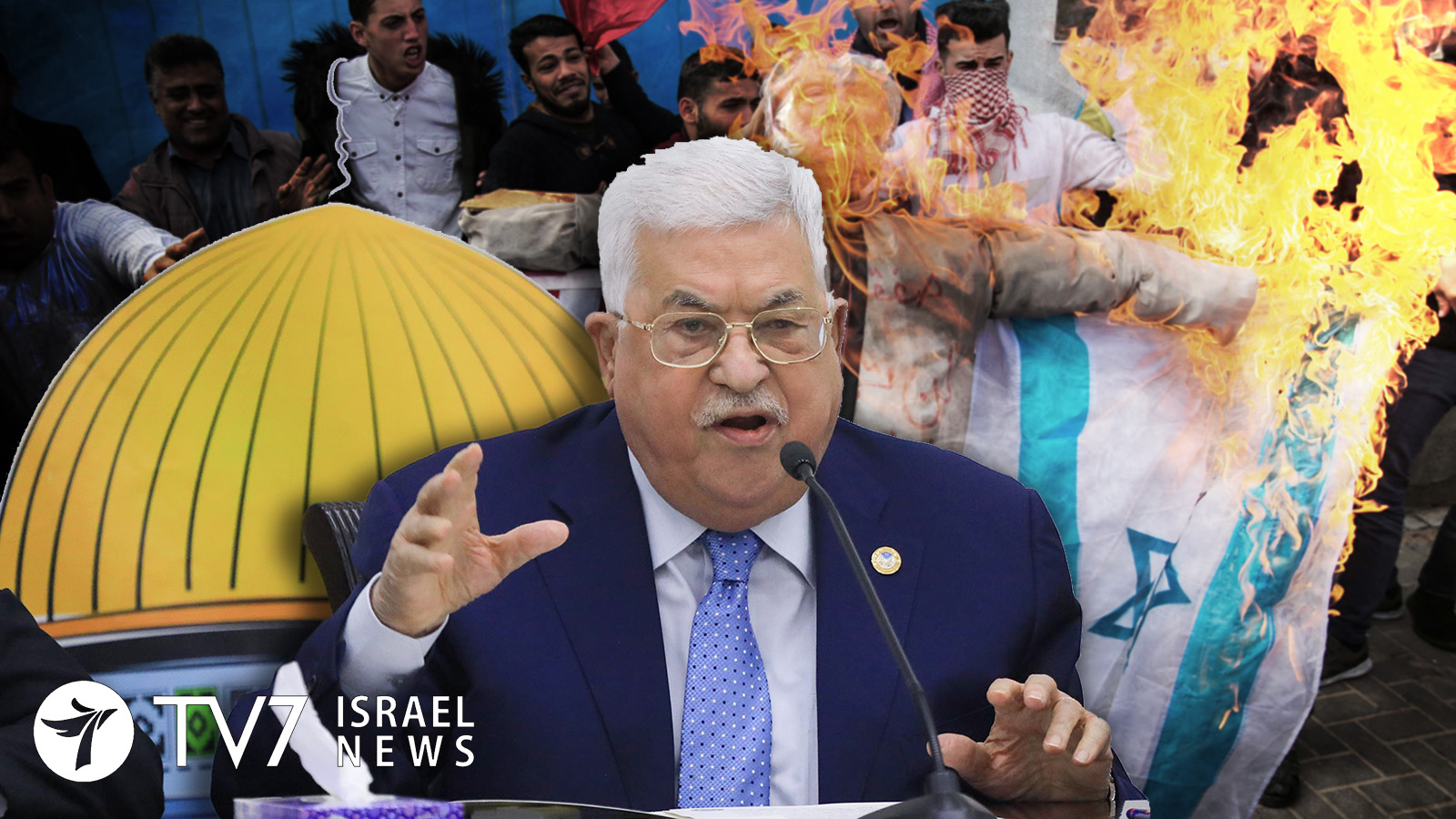Israeli Prime Minister Benjamin Netanyahu and his main political rival, Benny Gantz, met with U.S. President Donald Trump at the White House yesterday, ahead of the formal unveiling of the so-called ‘Deal of the Century’ set for today at 7 PM Jerusalem Time.
During his first talks with Netanyahu, the American leader described his initiative as “a plan that’s very important to peace in the Middle East. No matter where I went, they say ‘Israel and the Palestinians; they have to make peace before you can really have peace in the Middle East.’ So, people have been working on this for many, many years. And, I think we’re relatively close but we have to get other people to agree with it all. So, I will say many of the Arab nations have agreed to it; they like it. They think it’s great; they think it’s a big start. I think it’s a big start, too. I think it’s a fantastic thing if we can pull it off.”
The Israeli premier reiterated Jerusalem’s gratitude for President Trump, emphasizing that “the Deal of the Century is the opportunity of the century and we’re not going to pass it by. And, we’ll talk about that tomorrow. Today, I repeat, I just want to say thank you for everything you’ve done for the State of Israel. You’ve been the greatest friend that Israel has had in the White House. And, I think that tomorrow, we can continue making history. Thank you, Mr. President.”
When asked about whether he discussed the proposal with the Palestinians, Trump commented that ultimately they will be forced to negotiate.
“It’s something they should want. They probably won’t want it initially but, I think, in the end, they will. I think in the end, they are going to want it. It’s very good for them. In fact, it’s overly good to them. So, we’ll see what happens. Now, without them, we don’t do the deal and that’s okay. They’re not living well. As you know, we cut off aid to Palestinians and it’s something I don’t like to do but we did that. And, we think there’s a very good chance that they’re going to want this. I would say they’re, initial, just as great negotiators, and they are great negotiators–, their initial response, and I have no idea what they’re going to say–, would be–, ‘oh, we don’t want anything.’ But, in the meantime, they’ll be negotiating. So, let’s see how it works.”
Later in the day, Trump updated Member of Knesset and Blue and White party chief Benny Gantz on the U.S. peace plan. Gantz held a press conference after the closed-door talks, during which he hailed the American leader for being “a true and courageous friend of the state of Israel” and referred to the Washington’s proposal as “a significant and historic milestone, indeed.”
Gantz, who presides over Israel’s largest political party, pledged to support Trump’s initiative if he succeeds in forming the next government following an unprecedented 3rd round of national parliamentary elections on March 2. “Immediately after the election, I will work toward implementing it from within a stable, functioning Israeli government in tandem with the other countries in our region,” he vowed.
Former Air Force Commander Maj.-Gen. (Res.) Amir Eshel, who accompanied Gantz as an advisor and liaison to the U.S. administration, also revealed details on an extensive discussion held with President Trump about regional security-related challenges. “I thank the president for his profound support of Israel citizens and for his commitment to their security, particularly in responding to Iran and its terror proxies threatening our borders over the past few years as well as his decision to recognize Israel’s sovereignty over the Golan Heights, and for moving the embassy, the US embassy, to Jerusalem,” said Eshel, adding that he “also addressed the issue of Hezbollah and the increased activity we are witnessing on Syria’s Lebanon’s border.”
In complete opposition, Palestinian Prime Minister Mohammad Shtayyeh condemned the so-called “Deal of the Century” as serving only the interests of U.S. President Donald Trump and Israeli Prime Minister Benjamin Netanyahu. Speaking from the Palestinian Authority headquarters in the West Bank city of Ramallah, Shtayyeh argued that “This plan that does not provide the occupied land to its people and that does not recognize the borders of 1967, and does not recognize that Jerusalem is an occupied land, and provides it to Israel as a capital, and the plan creators launch a financial war against us, on the UNRWA and closes the office of Palestine in Washington, and dries the financial resources of the Palestinian Authority, is nothing but a plan to liquidate the Palestinian Issue, and we reject it and call for the international community to avoid being part of it, since it is inconsistent with basics of international law, and the rights of the Palestinian people are inalienable.”
President Mahmoud Abbas reportedly informed British Foreign Secretary Dominic Raab during a telephone conversation last night that Ramallah would not agree to any deal advanced by anyone in the world unless it ensured the establishment of a Palestinian state within the 1967 lines with East Jerusalem as its capital. Abbas also insisted the Palestinian Authority is willing to participate in talks with Israel mediated by any international brokers other than the United States, due to “its clear bias in Israel’s favor.”
Palestinian-Islamist groups in the Gaza Strip have declared two ‘Days of Rage’ against the U.S. deal, effective immediately. Abbas called for a similar ‘Day of Rage’ in the West Bank this Friday. Senior Palestinian officials have thus far provided conflicting information over the anticipated level of violence, and TV7 has not obtained definitive clarification as to whether Palestinian leaders have instructed their Western-backed security forces to prevent rioters from clashing with Israeli troops.
